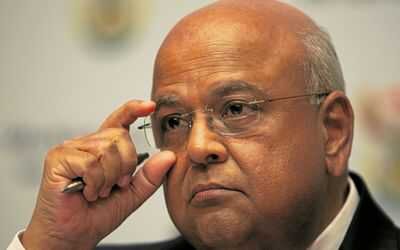
New Finance Minister Addresses Media on SA’s Financial Road Forward
New Finance Minister Pravin Gordhan, only appointed on Sunday night, lost no time addressing media on Monday, apparently trying to quell the local and international concerns raised by President Jacob Zuma’s sacking of Nhlanhla Nene last week and replacing him with a virtual unknown, which caused the rand to tumble and SA financial markets to […]

New Finance Minister Pravin Gordhan, only appointed on Sunday night, lost no time addressing media on Monday, apparently trying to quell the local and international concerns raised by President Jacob Zuma’s sacking of Nhlanhla Nene last week and replacing him with a virtual unknown, which caused the rand to tumble and SA financial markets to lose billions of rands.
Gordhan, flanked by the governor of the Reserve Bank‚ Lesetja Kganyago‚ and deputy finance minister‚ Mcebisi Jones‚ addressed numerous issues. These included the situation at the embattled South African Airways, which has been under growing pressure because of its financial losses, a chairwoman who seems to be untouchable because of her connections to Zuma, and recalcitrant pilots who demand a new board.
But his main message seemed to be that it would be business as usual and the financial policies of South Africa would be “sound fiscal management” and the paying of debts would be a higher priority than spending.
On fiscal policy:
“We will stay the course of sound fiscal management. Our expenditure ceiling is sacrosanct.”
“Payment of our debt is the first item we take off our revenue … Everything else follows later.”
“Our humble appeal to the nation is to work with us as we continue to build a resilient economy and a better life for all South Africans in the context of a challenging global, emerging markets and domestic economic environment.”
Gordhan said he would focus on building “a resilient and inclusive economy” in what he described as a “very challenging” global and domestic environment.
“We are very aware that confidence and trust doesn’t get handed to one on a platter. It is something that one has to earn and something that one has to sustain over a period of time.”
On state-owned companies:
“Work has begun to develop a uniform legislative framework to regulate state-owned companies. We cannot avoid the necessity of wide-ranging reforms that will put them on a sustainable financial footing and where good governance is non-negotiable.”
On SAA:
“SAA is a national asset that we need to look after.”
“We will deal with the board of SAA in the new year. Anything done has to be in the fiscal framework.”
On the reckless use of public enterprises by individuals (possibly a reference to SAA chairwoman Dudu Myeni’s controversial hold over the company):
“It is time that individuals or groups of individuals stopped playing with public entities.”
He warned “anybody who thinks that the state machinery is there for their own personal pockets” that this would not be tolerated.
On the nuclear procurement deal:
“We will act in a fiscally responsible manner. We will not spend money we don’t have.”
On SA’s crippled public enterprises:
“Any support to these companies will be done in a fiscally sustainable manner”.
On his new job – again – as finance minister:
“It is not my job to be happy, it is my job to make the lives of South Africans better.”